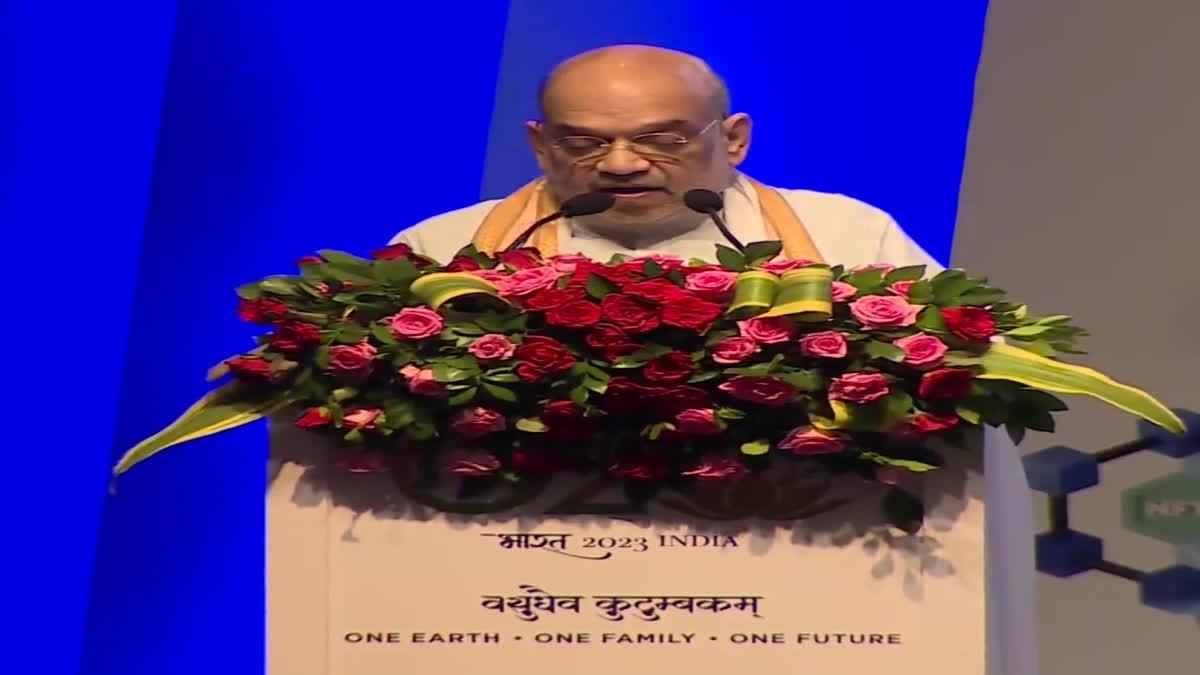
Terrorists are finding new ways to perpetrate violence, radicalise youth and raise financial resources
Expressing concern that terrorists are finding new ways to perpetrate violence, radicalise youth and raise financial resources, Union Home Minister Amit Shah on Thursday said that cyber security has become an essential aspect of global security, that requires adequate attention on its economic and geo-political implications.
“It is essential to strengthen the capabilities of nations and international organisations to deal with the new and emerging, traditional and non-traditional challenges including terrorism, terror financing, radicalisation, narco, narco terror links, and misinformation in a better way,” Shah said while inaugurating G20 conference on crime and security, in the age of NFTs, AI and Metaverse in the national capital.
Without naming any organisation and countries for involvement in to nefarious activities, Shah said that there are some anti-social and global forces, that are using technology to cause economic and social harm to citizens and government.
Shah said that new methods in the form of virtual assets are being used by terrorists for financial transactions. Apart from G20 members, nine guest countries, and 2 major international organisations, INTERPOL and UNODC, as well as various international organisations are participating the summit.
Shah said that today 840 million Indians have an online presence, and by 2025 another 400 million Indians will enter the digital world. He said that internet connections have increased by 250 percent in nine years and India leads in global digital payments with 90 million transactions in 2022.
Referring to Interpol’s Global Trend Summary Report, Shah said that for 2022, cybercrimes trends such as ramsomware, phishing, online scams, online child sexual abuse are posing serious threat across the globe. “There is a possibility that these cyber crimes will increase manifold in the future,” the Union Home Minister said.
He said that the transformation of our security challenges from ‘dynamite to metaverse’ and ‘hawala to crypto currency’ is a matter of concern for the countries of the world. “All of us, together, have to devise a common strategy against it,” Shah urged. Asserting that terrorists are using dark net to hide their identity and spread radical matters, Shah said, “We have to understand the pattern of these activities running on the dark net and find solution for the same.”
According to World Bank estimates, cyber attacks could have caused losses of around $5.2 trillion to the world during the years 2019-2023. The use of crypto currency by malicious threat actors further complicates its detection and prevention. Talking about Metaverse, Shah said that once a science fiction idea, it has now stepped into the real world.
“The Metaverse may create new opportunities for terrorist organisations primarily for propoganda, recruitment and training. This will make it easier for terrorist organisations to select and target vulnerable people and prepare material according to their vulnerabilities,” Shah added.
The Union Home Minister said that there must be efforts to bring some uniformity in the laws of all countries made to counter digital crimes. “Keeping in mind the borderless nature of cybercrimes, we must put in place a response mechanism under different laws of the countries,” said Shah.
Asserting that a real-time cyber threat intelligence among member countries is the need of the hour, Shah said, “An integrated and stable approach to cyber security policies, will facilitate interoperability, increase trust in information sharing, and reduce the agency protocol and resources gaps.” He also said that given the rise in cybercrime involving digital currency, there is a need for a dedicated common channel among the nations to prevent such financial irregularities.
During Thursday’s programme Shah also flagged off the ‘Cyber Volunteer’ squads from seven premier educational institutions of the country including National Law University (Delhi), Amrita Viswa Vidyapitham, IIT Jodhpur, IIT Madras, Nalsar University of Law, National Forensic Science University, Rashtriya Raksha University.
Source » etvbharat





